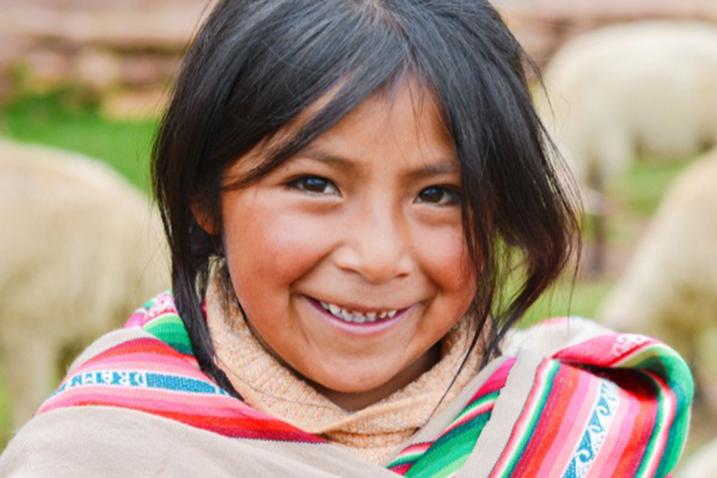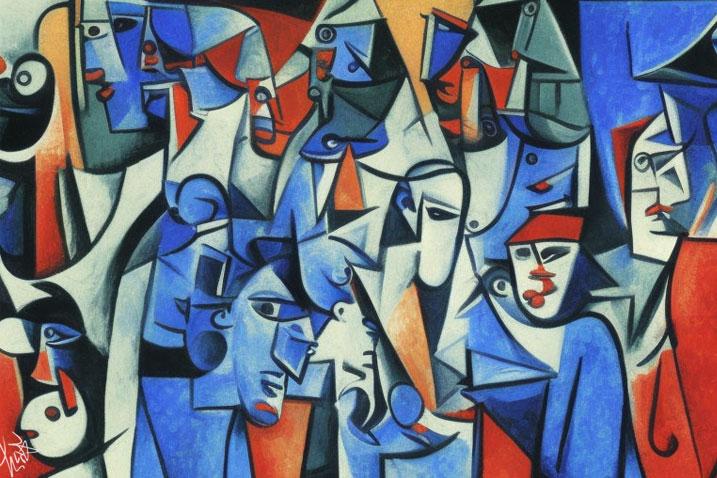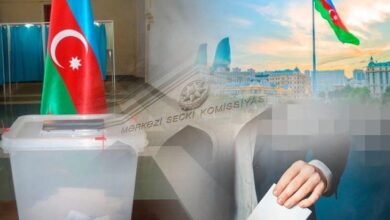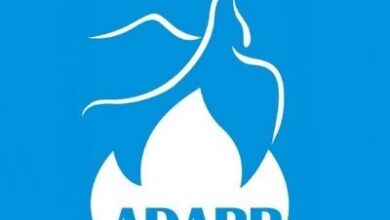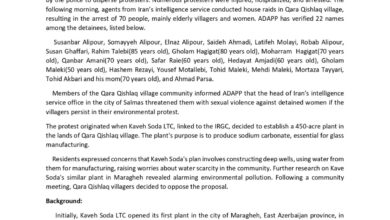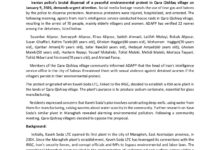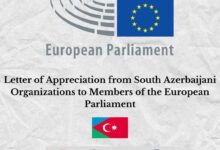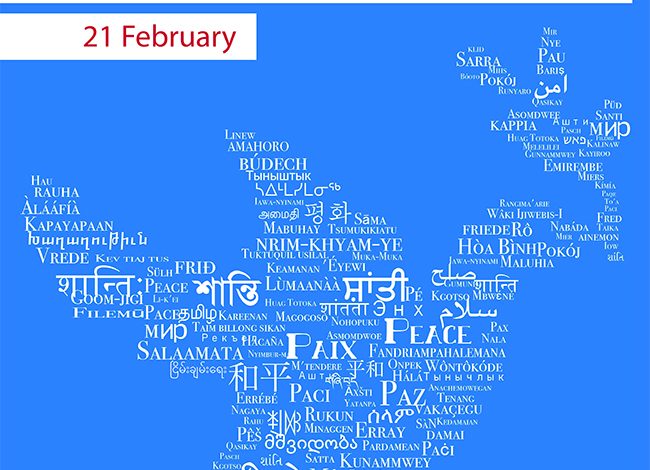
Multilingual education – a necessity to transform education
Globally 40 per cent of the population does not have access to an education in a language they speak or understand. But progress is being made in multilingual education with growing understanding of its importance, particularly in early schooling, and more commitment to its development in public life.
International Mother Language Day recognizes that languages and multilingualism can advance inclusion, and the Sustainable Development Goals’ focus on leaving no one behind. UNESCO encourages and promotes multilingual education based on mother tongue or first language. It is a type of education that begins in the language that the learner masters most and then gradually introduces other languages. This approach enables learners whose mother tongue is different from the language of instruction to bridge the gap between home and school, to discover the school environment in a familiar language, and thus, learn better.
Multilingualism contributes to the development of inclusive societies that allow multiple cultures, worldviews and knowledge systems to coexist and cross-fertilize.
The theme of the 2023 International Mother Language Day, “Multilingual education – a necessity to transform education” aligns with recommendations made during the Transforming Education Summit, where an emphasis was also placed on Indigenous people’s education and languages.
Multilingual education based on mother-tongue facilitates access to and inclusion in learning for population groups that speak non-dominant languages, languages of minority groups and indigenous languages.
Events
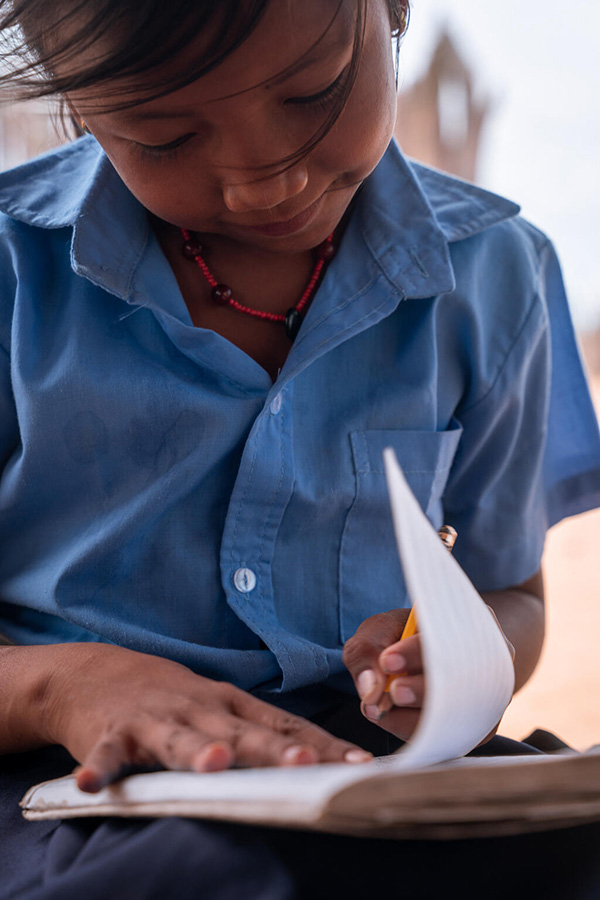
Main Event
21 February 2023
The event hosted by UNESCO will explore the following main themes:
- Enhancing multilingual education as a necessity to transform education in multilingual contexts from early childhood education and well beyond;
- Supporting learning through multilingual education and multilingualism in our fast-changing global contexts and in crisis situations including emergencies contexts;
- Revitalizing languages that are disappearing or are threatened with extinction.
Event at UN Headquarters
Tuesday, 21 February 2023, from 3 to 5 p.m. (EST)
The Permanent Mission of Bangladesh to the UN is organizing a discussion with senior officials from Permanent Missions (including Bangladesh, Denmark, Guatemala, Hungary, India, Morocco and Timor-Leste) and the United Nations (including UN Secretariat and UNESCO representatives) on the theme “Multilingual education – a necessity to transform education.” The discussion segment will be followed by multicultural performances. The event will be streamed on UN WebTV.
Safeguarding Linguistic Diversity
Languages, with their complex implications for identity, communication, social integration, education and development, are of strategic importance for people and planet. Yet, due to globalization processes, they are increasingly under threat, or disappearing altogether. When languages fade, so does the world’s rich tapestry of cultural diversity. Opportunities, traditions, memory, unique modes of thinking and expression — valuable resources for ensuring a better future — are also lost.
Every two weeks a language disappears taking with it an entire cultural and intellectual heritage. At least 43% of the estimated 6000 languages spoken in the world are endangered. Only a few hundred languages have genuinely been given a place in education systems and the public domain, and less than a hundred are used in the digital world.
Multilingual and multicultural societies exist through their languages, which transmit and preserve traditional knowledge and cultures in a sustainable way.
International Mother Language Day is observed every year to promote linguistic and cultural diversity and multilingualism.
Background
International Mother Language Day was proclaimed by the General Conference of the United Nations Educational, Scientific and Cultural Organization (UNESCO) in November 1999. The idea to celebrate International Mother Language Day was the initiative of Bangladesh. The UN General Assembly welcomed the proclamation of the day in its resolution of 2002.
On 16 May 2007 the United Nations General Assembly in its resolution A/RES/61/266 called upon Member States “to promote the preservation and protection of all languages used by peoples of the world”. By the same resolution, the General Assembly proclaimed 2008 as the International Year of Languages, to promote unity in diversity and international understanding, through multilingualism and multiculturalism and named the United Nations Educational, Scientific and Cultural Organization to serve as the lead agency for the Year.
Today there is growing awareness that languages play a vital role in development, in ensuring cultural diversity and intercultural dialogue, but also in strengthening co-operation and attaining quality education for all, in building inclusive knowledge societies and preserving cultural heritage, and in mobilizing political will for applying the benefits of science and technology to sustainable development.
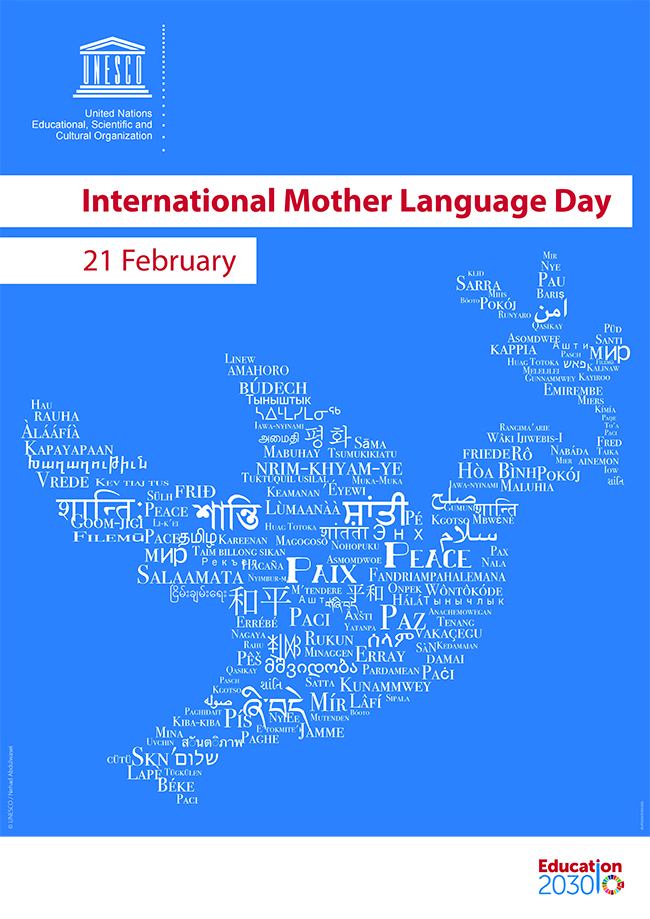
Message
UN and Multilingualism
- Multilingualism at the United Nations: Why it matters
- Multilingualism Coordinator
- Research Guide on Multilingualism at the United Nations
Documents
- Convention for the Safeguarding of the Intangible Cultural Heritage
- Convention on the Protection and Promotion of the Diversity of Cultural Expressions
- Convention against Discrimination in Education
- Universal Declaration on Cultural Diversity
- Convention for the Safeguarding of the Intangible Cultural Heritage
- Recommendation concerning the Promotion and Use of Multilingualism and Access to Cyberspace
- Convention on the Protection and Promotion of the Diversity of Cultural Expressions
- International Covenant on Civil and Political Rights
- Declaration on the Rights of Persons belonging to National or Ethnic, Religious and Linguistic Minorities
- Declaration on the Rights of Indigenous Peoples
- Preparation of a convention for the protection of indigenous and endangered languages
- Education, language and the human rights of minorities
Resources
- International Decade of Indigenous Languages (2022-2032)
- International Year of Indigenous Languages (2019)
- Organisation Internationale de la Francophonie
UNESCO
- Atlas of the World’s Languages in Danger
- Global Digital Library
- Translate a story
- B@bel Initiative
- Living heritage and mother languages
- Languages in education
- Inclusion in education
- Multilingualism and Linguistic diversity
- Intangible heritage
- Language vitality and endangerment
- Education in a multilingual world
The International Decade of Indigenous Languages (2022-2032) aims to ensure indigenous peoples’ right to preserve, revitalize and promote their languages. It offers an opportunity to collaborate in the areas of policy development and stimulate a global dialogue and to take necessary measures for the usage, preservation, revitalization and promotion of indigenous languages around the world.
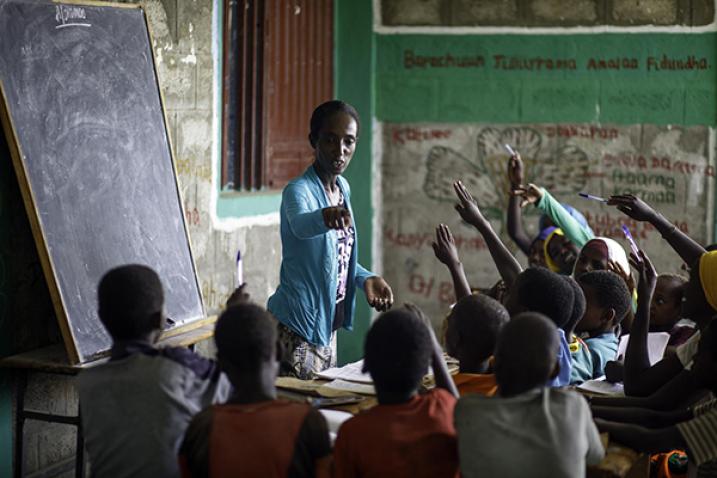
Related observances
International days and weeks are occasions to educate the public on issues of concern, to mobilize political will and resources to address global problems, and to celebrate and reinforce achievements of humanity. The existence of international days predates the establishment of the United Nations, but the UN has embraced them as a powerful advocacy tool. We also mark other UN observances.


